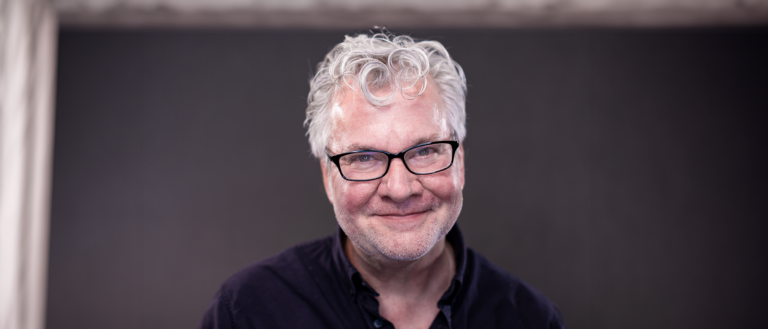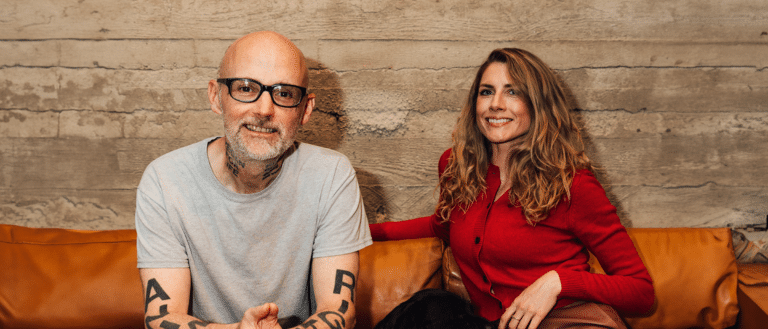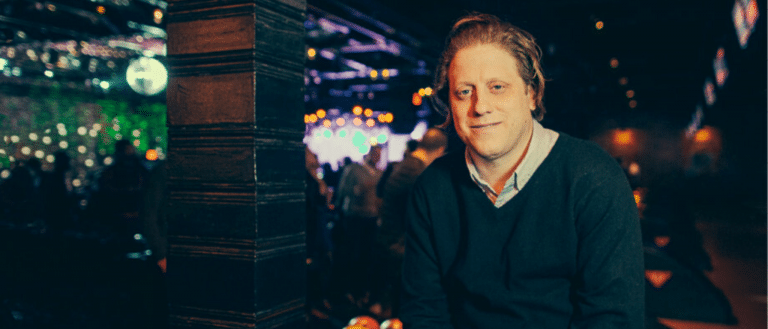This week’s conversation is with Elizabeth Pitcairn, a world-renowned classical violin virtuoso.
After making her orchestra debut at age 14, Elizabeth has gone on to travel the globe with her violin, performing as a soloist in various highly acclaimed orchestras at some of the most prolific classical music venues on the planet.
Elizabeth is also known for performing with one of the world’s most legendary instruments – the Red Mendelssohn Stradivarius violin of 1720 – said to have inspired the Academy Award–winning film The Red Violin.
In addition to her acclaimed solo career, Elizabeth is a passionate advocate of music education, and serves as the President and Artistic Director of the Luzerne Music Center in upstate New York, which provides world-class music instruction for gifted young musicians.
At its core, this is a conversation about developing a relationship with mastery: the standard of perfection, being a conduit to the music, and the ups and downs of truly loving your craft.
“I’m not trying to be better than someone else. What I’m trying to do is serve the music at its highest level.”
In This Episode:
Does she still get nervous?
I do but I’ve learned to embrace my nerves as a good thing. Instead of resisting them, I allow the adrenaline feeling to course through my body to the point where I can feel it head to toe and feel the buzz, and the sick feeling that comes with it and work it out of my system in advance of, let’s say, the show, the event. The farther in advance that I start getting the nerves, the better I perform when I get to the show. The worst part is to have it happen as a rush that’s unexpected and your body has trouble handling the rush of adrenaline. Even though it feels terrible, I mentally say to myself, “Bring it on, bring it on. Just let it go through.”
Adrenaline and nerve response
The feeling generally inspires a response. It’s either procrastination or it’s let’s get going with this and put in some serious work, and the adrenaline will allow me to practice untold hours with incredible focus, and then walk out on a stage and then elevate my game to a whole new level, that my performance is dramatically better in the performance than the dress rehearsal, so I save something back in the dress rehearsal but I channel the nerves into being able to play with a tremendous amount of energy, and put everything I have into it and go into a place where I’m not even aware of being present anymore, I’m just not.
Good vs. great
From what I understand, the difference between being good and being great is about 2%, so if you want to live in the rarefied atmosphere of the very best that you can be, then you’re driving yourself to an infinitesimal level, and that, to me, is fascinating to go there and live in that and it is really hard work. You’re always working and you have to be driven and not comfortable.
What does it mean to be your best?
I think in my early twenties I let go of the insecurities of feeling like I wasn’t good enough, and started judging myself according to my own personal standards. Yes, hearing my colleagues and hearing how the best in the world did things but then having my own standards, so I’m constantly raising the bar of my own standards… I’m not trying to be better than someone else. What I’m trying to do is serve the music at its highest level and the better I get, the more I realize what that is and to try to come close to circling back to the divine perfection, we are not perfect as humans, so we can’t be perfect on our own. I don’t know what happens when I go onto stage and I go into my zone, but something happens and I often feel like I’m a conduit and I know that what I’m doing with the music and bringing this beauty peace and all kinds of emotions is a powerful thing for people’s souls, for mine and for the audience, and we go on a journey together.
Perfect pitch
My father was very musical and had perfect pitch that he inherited from his mother, who was Dutch. And so, I didn’t know I had perfect pitch until I was 10-years-old. I didn’t know that not everyone had perfect pitch. I didn’t even know that… For me, hearing a pitch and saying what it is, is the same as us seeing the color red and saying it’s red, and a is an a. At 10-years-old, when people discovered this and freaked out, I was surprised.
Becoming the owner of the famous, “Red Violin”
It was the timing of the Red Violin coming up for auction in 1990 at Christie’s of London, that hadn’t been on the market in 45 years. You’re lucky if you see one of those in your lifetime. You’re not going to see it again. They don’t come and go. Something of that magnitude, in the top 10% of the instruments that Stradivari ever made, is not going to surface repeatedly. It’s going to get bought and it’s going to be held for a long time. There’s only a couple of owners that we’ve ever known about, and I’m just lucky that. You talked about responsibility, talk about responsibility to look after it and take care of it, but a greater responsibility is what you do with it. I think serving my purpose, and serving people, and helping people, and my passion for youth in education has channeled all that gift into a real purpose here on this in my lifetime.
Loneliness and reigniting love for her craft
Up to a certain point, I can remember and I can tell you all the things that happened, but I don’t have an emotional charge behind it anymore. I have the memories, but I’m a completely different player of late because I went through that process, to come back to violin with love and the knowledge of how to play it, but none of the anxiety, and the tension, and the insecurity that I felt when I was younger. We were lonely. I grew up on 80 acres in the country. We didn’t even have a center of town. We had a township. I had to practice almost four hours every day. And often, practicing was used as a weapon. If I wanted to go see my friends, I had to practice. And if I wouldn’t cooperate, I couldn’t go until I was done practicing. To the point that there was never a day off. People ask, was it child abuse? No, it wasn’t. It was just I had a driven mother and everything she did, was because she saw this dream of me being this soloist and she knew I had what it took.
Holding a certain mindset for practice
When we actually execute what I’m going to say, this is my understanding of what to do, it is a true hold. So I’ll put myself in the place and time of the event I’m preparing for. And sometimes I’ll have a flashback when I’m on stage and I’ll have a flashback to the moment, two weeks ago at 11 a.m, when I was tackling that particular issue in the piece that I needed to solve. And I’ll have a premonition at that moment, at 11 a.m, in that moment, and I’ll think, “The work that you’re doing right now on this passage is going to translate into your performance two weeks from now. And this is the moment where you’re accomplishing that.” I can picture myself in the concert hall in real time, playing for people. So it’s real. And I’m 100% focused on the work in that moment.
Correcting a mistake
Then, when a mistake happens, as it’s happening, you’re correcting it. And sometimes you correct it before anyone else can hear it and they don’t even know, but otherwise, if you have … I trained to be able to avoid catastrophic mistakes, mostly from my own nerves, because I would get so nervous that I would create some kind of calamity. But I taught myself how to keep going no matter what, so don’t stop no matter what. And I can always get back on. So that was sort of step one to getting that. And then, I think it’s that type of performance, practicing, and putting yourself in that, visualizing that you’re actually in the performance. So that you have ultimate command.


